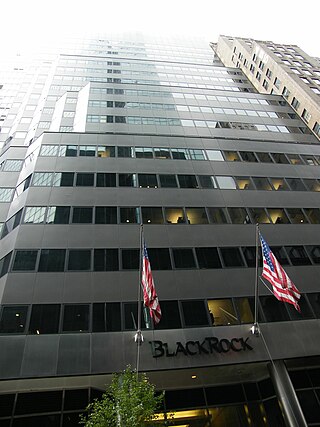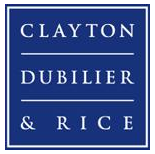Related Research Articles
In business, a corporate raid is the process of buying a large stake in a corporation and then using shareholder voting rights to require the company to undertake novel measures designed to increase the share value, generally in opposition to the desires and practices of the corporation's current management. The measures might include replacing top executives, downsizing operations, or liquidating the company.

A leveraged buyout (LBO) is one company's acquisition of another company using a significant amount of borrowed money (leverage) to meet the cost of acquisition. The assets of the company being acquired are often used as collateral for the loans, along with the assets of the acquiring company. The use of debt, which normally has a lower cost of capital than equity, serves to reduce the overall cost of financing the acquisition. The cost of debt is lower because interest payments often reduce corporate income tax liability, whereas dividend payments normally do not. This reduced cost of financing allows greater gains to accrue to the equity, and, as a result, the debt serves as a lever to increase the returns to the equity.
The Carlyle Group is a multinational private equity, alternative asset management and financial services corporation based in the United States with $376 billion of assets under management. It specializes in private equity, real assets, and private credit. It is one of the largest mega-funds in the world. In 2015, Carlyle was the world's largest private equity firm by capital raised over the previous five years, according to the PEI 300 index. In the 2022 ranking however, it had slipped to sixth place.
Investment banking pertains to certain activities of a financial services company or a corporate division that consist in advisory-based financial transactions on behalf of individuals, corporations, and governments. Traditionally associated with corporate finance, such a bank might assist in raising financial capital by underwriting or acting as the client's agent in the issuance of debt or equity securities. An investment bank may also assist companies involved in mergers and acquisitions (M&A) and provide ancillary services such as market making, trading of derivatives and equity securities, FICC services or research. Most investment banks maintain prime brokerage and asset management departments in conjunction with their investment research businesses. As an industry, it is broken up into the Bulge Bracket, Middle Market, and boutique market.
In the field of finance, the term private equity (PE) refers to investment funds, usually limited partnerships, which invest in and restructure private companies. A private-equity fund is both a type of ownership of assets and is a class of assets, which function as modes of financial management for operating private companies that are not publicly traded in a stock exchange.

Financial services are economic services provided by the finance industry, which together encompass a broad range of service sector firms that provide financial management, including credit unions, banks, credit-card companies, insurance companies, accountancy companies, consumer-finance companies, stock brokerages, investment funds, individual asset managers, and some government-sponsored enterprises.

KKR & Co. Inc., also known as Kohlberg Kravis Roberts & Co., is an American global investment company that manages multiple alternative asset classes, including private equity, energy, infrastructure, real estate, credit, and, through its strategic partners, hedge funds. As of December 31, 2022, the firm had completed more than 690 private equity investments in portfolio companies with approximately $700 billion of total enterprise value. As of December 31, 2022, assets under management (AUM) and fee paying assets under management (FPAUM) were $504 billion and $412 billion, respectively.
Bain Capital is an American private investment firm based in Boston. It specializes in private equity, venture capital, credit, public equity, impact investing, life sciences, crypto, tech opportunities, partnership opportunities, special situations and real estate. Bain Capital invests across a range of industry sectors and geographic regions. As of 2022, the firm managed approximately $165 billion of investor capital. The firm was founded in 1984 by partners from the consulting firm Bain & Company. The company is headquartered at 200 Clarendon Street in Boston with 22 offices in North America, Europe, Asia, and Australia.

BlackRock, Inc. is an American multi-national investment company based in New York City. Founded in 1988, initially as an enterprise risk management and fixed income institutional asset manager, BlackRock is the world's largest asset manager, with {{currency|97.4|USD} 97.4 billion in assets under management as of December 31, 2022. BlackRock operates globally with 70 offices in 30 countries, and clients in 100 countries. BlackRock is the manager of the iShares group of exchange-traded funds, and along with The Vanguard Group and State Street, it is considered to be one of the Big Three index fund managers. Its Aladdin software keeps track of investment portfolios for many major financial institutions and its BlackRock Solutions division provides financial risk management services. BlackRock is ranked 184th on the Fortune 500 list of the largest United States corporations by revenue.
Restructuring is the corporate management term for the act of reorganizing the legal, ownership, operational, or other structures of a company for the purpose of making it more profitable, or better organized for its present needs. Other reasons for restructuring include a change of ownership or ownership structure, demerger, or a response to a crisis or major change in the business such as bankruptcy, repositioning, or buyout. Restructuring may also be described as corporate restructuring, debt restructuring and financial restructuring.
A private equity fund is a collective investment scheme used for making investments in various equity securities according to one of the investment strategies associated with private equity. Private equity funds are typically limited partnerships with a fixed term of 10 years. At inception, institutional investors make an unfunded commitment to the limited partnership, which is then drawn over the term of the fund. From the investors' point of view, funds can be traditional or asymmetric.

Federated Hermes is an investment manager headquartered in Pittsburgh, Pennsylvania, United States. Founded in 1955 and incorporated on October 18, 1957, the company manages $669 billion of customer assets, as of Dec. 31, 2022. The company offers investments spanning equity, fixed-income, alternative/private markets, multi-asset and liquidity management strategies, including mutual funds, exchange-traded funds (ETFs), separate accounts, closed-end funds and collective investment funds. Clients include corporations, government entities, insurance companies, foundations and endowments, banks and broker/dealers.

Clayton, Dubilier & Rice (CD&R) is an American private equity company. It is one of the oldest private equity investment firms in the world. Founded in 1978, CD&R has managed the investment of more than $30 billion in approximately 90 businesses, representing a broad range of industries with an aggregate transaction value in excess of $140 billion. Approximately half of CD&R's investments have involved corporate divestitures.

Apollo Global Management, Inc. is an American global private equity firm. Founded in 1990 by Leon Black, Josh Harris, and Marc Rowan, it provides investment management and invests in credit, private equity, and real assets. As of 2022, the company had $548 billion of assets under management, including $392 billion invested in credit, including mezzanine capital, hedge funds, non-performing loans, and collateralized loan obligations, $99 billion invested in private equity, and $46.2 billion invested in real assets, which includes real estate and infrastructure. The company invests money on behalf of pension funds, financial endowments, and sovereign wealth funds, as well as other institutional and individual investors. Funds managed by Apollo have produced a 24% internal rate of return (IRR) to investors, net of fees.

The history of private equity and venture capital and the development of these asset classes has occurred through a series of boom-and-bust cycles since the middle of the 20th century. Within the broader private equity industry, two distinct sub-industries, leveraged buyouts and venture capital experienced growth along parallel, although interrelated tracks.

Private equity in the 2000s represents one of the major growth periods in the history of private equity and venture capital. Within the broader private equity industry, two distinct sub-industries, leveraged buyouts and venture capital expanded along parallel and interrelated tracks.

Farallon Capital Management, L.L.C. is an American multi-strategy hedge fund headquartered in San Francisco, California. Founded by Tom Steyer in 1986, the firm employs approximately 230 professionals in eight countries around the world.
Entrepreneurial finance is the study of value and resource allocation, applied to new ventures. It addresses key questions which challenge all entrepreneurs: how much money can and should be raised; when should it be raised and from whom; what is a reasonable valuation of the startup; and how should funding contracts and exit decisions be structured.
United Asset Management was an American holding company headquartered in Boston, Massachusetts that owned a number of financial-sector companies. It was founded in 1980 by Norton Reamer, who previously had served as the CEO of Putnam Investments. The company was the first major firm with a business model that consisted of purchasing a number of money management firms.
Edper Investments Ltd. was the primary holding company and investment vehicle for brothers Edward Bronfman and Peter Bronfman between 1959 and 1995. At its peak in the 1980s, and early 1990s, Edper was one of the largest corporate conglomerates in Canada, controlling more than 500 private and publicly traded companies in a complex structure that was estimated to be worth $100 billion, employed more than 100,000 Canadians, and comprised 15% of the total capitalization of the Toronto Stock Exchange.
References
- ↑ Dawn R. DeTienne; Karl Wennberg, eds. (2015). Research Handbook of Entrepreneurial Exit. Edward Elgar Publishing. pp. 87–91. ISBN 9781782546979.
- ↑ Jorma Larimo; Pratik Arte; Carlos M.P.Sousa; Pervez N.Ghauri; José Mata, eds. (2022). Research Handbook on Foreign Exit, Relocation and Re-entry; Theoretical Perspectives and Empirical Evidence. Edward Elgar Publishing. pp. 1–8. ISBN 9781800887145.
- ↑ Sarah Kumpf (2013). Listed Private Equity: Investment Strategies and Returns. Diplomica Verlag. pp. 33–34. ISBN 9783842889484.